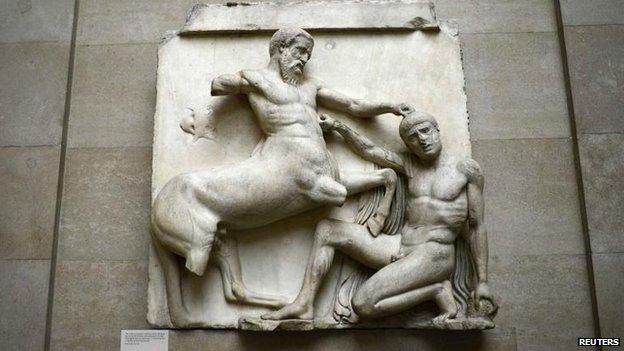Elgin Marbles: Commons motion urges return to Greece
- Published
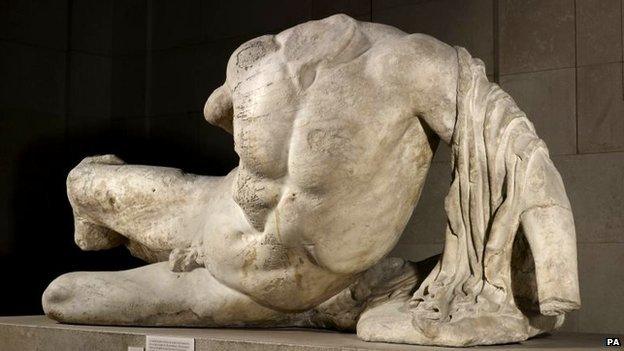
The Ilissos statue was loaned to Russia in December
A parliamentary move to expedite the return of the Elgin Marbles from the UK to Greece will be made later.
In an early day motion, Lib Dem MP Andrew George will urge the government to make moves towards "reuniting" them with those in the Acropolis Museum.
The marbles, once part of the 2,500-year-old Parthenon temple, but removed by Lord Elgin 200 years ago, are held in the British Museum.
Greece insists they were taken illegally and should be returned.
In his early day motion, Mr George will call for the government to "demonstrate that Britain is prepared to... reunite these British-held Parthenon sculptures with those now displayed in the purpose-built Acropolis Museum in the shadow of the monument to which they belong, the Parthenon in Athens".
Mr George chairs the Marbles Reunited organisation, a campaign group which lobbies for the sculptures to be sent back to Greece.
The group is calling on the UK government to respond to an invitation issued in 2013 by the United Nations cultural agency Unesco concerning mediation over the future of the marbles.
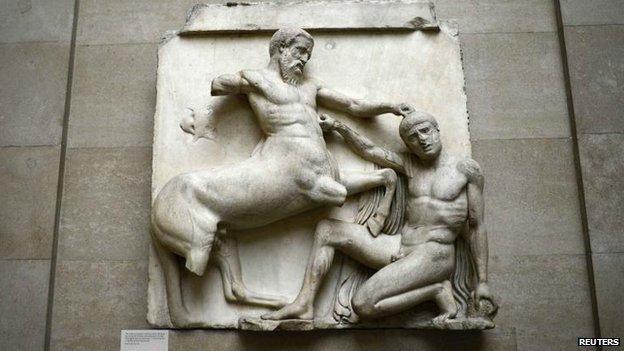
About 30% of the original Parthenon Marbles are held in the British museum
Thomas Bruce, the seventh Earl of Elgin, became British Ambassador to the Ottoman Empire in 1799.
In 1801, he negotiated with the Ottoman Turks, who then controlled Athens, to remove statues from the Parthenon.
Elgin, an art lover, claimed the sculptures were better off in Britain than the perilous environment he found them in.
Neil Macgregor, director of the British Museum, told the Evening Standard, external: "Elgin rescued some of the greatest things ever made, so the world can enjoy them."
"The greatest things in the world should be... shared and enjoyed by as many people in as many countries as possible."
When questioned about it in 2013, Prime Minister David Cameron said: "No, I certainly don't believe in 'returnism', as it were. I don't think that is sensible.
"I think the right answer is for the British Museum and other cultural institutions in Britain is to do exactly what they do, which is link up with museums all over the world... to make sure that the things that we have and look after so well are properly shared with people around the world.

The Marbles
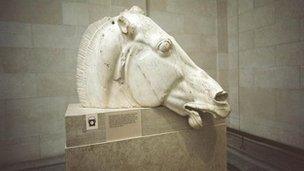
Friezes and pediment figures which decorated the Parthenon temple in Athens, built 447-432 BC
Many were removed by agents of the British diplomat Lord Elgin in the early 19th Century, and eventually sold to the British Museum
Most of the surviving sculptures are roughly equally divided between London and Athens
The new Acropolis Museum opened in Athens in 2009. It is designed to display all of the surviving sculptures, in their original layout

In December the British Museum loaned one of the Elgin Marbles for the first time to Russia for a display in St Petersburg's State Hermitage Museum.
The Greek Prime Minister at the time, Antonis Samaras, said the British Museum's decision was "an affront" to the Greek people.
Greece maintains that Lord Elgin removed the marbles illegally between 1801 and 1812, while the country was under Turkish occupation as part of the Ottoman Empire.
The items have remained in the British Museum ever since.
George Clooney's wife, lawyer Amal Clooney, has previously held talks with the Greek government as part of the ongoing campaign to have the sculptures returned from Britain.
- Published5 December 2014
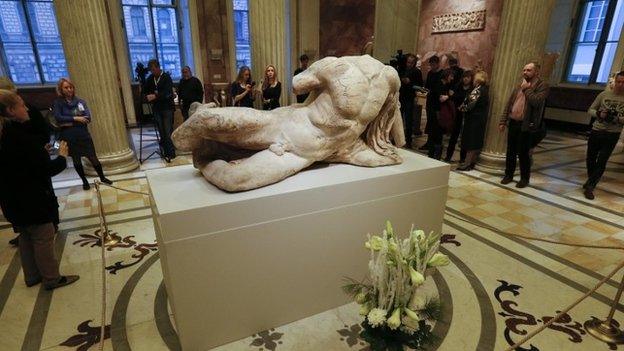
- Published4 December 2024
